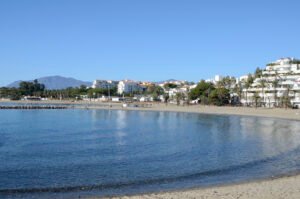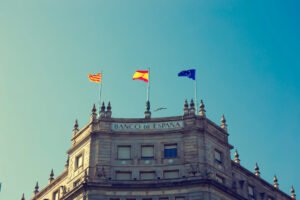Thinking of Buying Property in Costa del Sol? Here’s Everything You Need to Know
This guide is designed to give you clear, accurate, and up-to-date answers to the most common questions asked by foreign buyers. Whether you're investing, relocating, or buying a holiday home, you'll find essential information on legal processes, financing, ownership rights, and life on the Costa del Sol. Use this guide to navigate your property journey with confidence and peace of mind.
Can foreigners buy property on the Costa del Sol?
Yes. Foreigners can legally buy property in Spain. However, due to anti-money laundering laws, developers must verify the origin of your funds. If you can’t justify your funds, the purchase won’t proceed.
What are the best areas to buy on the Costa del Sol?
There are no conflictive or unsafe areas on the CDS. It's true that there are also working-class neighborhoods. To a great extent, the area depends on each person’s preferences. The jewel of the crown is Marbella, with its luxurious marina Puerto Banús and its vibrant international lifestyle. Estepona is called the New Pearl of the Mediterranean for its well-preserved historic center, free of traffic. Sotogrande is one of the most prestigious and valued marinas, lively in summer but perhaps too quiet in winter and far from shops. Mijas Costa is also a good option for its more tranquil beaches and proximity to the airport.
What are the advantages of buying a new build home?
Its advisable to purchase a new property and be the first to live in it for several reasons: as this usually ensures better thermal and acoustic efficiency, legal guarantees for construction, and more modern layouts. You often get better amenities such as private gyms, wellness areas, gardens, communal pools, and a concierge — all becoming standard nowadays.
What taxes do I have to pay when buying a new home?
You need to add 10% VAT and 1% Stamp Duty (AJD) to the price of the home, plus notary and property registry fees, which are usually around 0.5%, though this may vary. You also need to add about 1% in legal fees. While legal representation is not mandatory, it is highly recommended, as documents will only be issued in Spanish by the notary and property registrar. If you also need a mortgage, this will incur an additional small appraisal cost.
Can the price of the home change during construction?
The price is fixed in a contract and cannot change unless you opt for extras like underfloor heating or special finishings. These extras also come at fixed prices listed by the developer, depending on the construction phase.
How do you pay for a property that is not yet built?
This can vary by project and developer, but usually you make a reservation payment between €6,000 and €10,000 to begin the purchase process and take the unit off the market. Once your source of funds is verified, a private purchase contract is signed (typically one to two months after the reservation, or longer), during which time 20% of the property's value is paid. During construction, an additional 10% is typically paid. Once the home is completed, the remaining 70% is paid at the notary.
What commission do I pay the real estate agent?
As mentioned earlier, for new build homes, prices are fixed and it’s the developer who pays the agent’s commission. It is already included in the price of the property.
Can I save the commission if I buy directly from the developer?
No. The agent's commission is paid by the developer and is not deducted from the price if you buy directly. So the developer saves money, not the buyer. A good real estate agent can be an advantage: they know the area, understand the market, and can help you find the right property for your needs, without it costing you more.
Can I get a mortgage as a non-resident?
Yes, many Spanish banks offer mortgages to non-resident buyers. Typically, banks will lend up to 60–70% of the property’s purchase price, depending on your financial profile. You’ll need to provide documentation such as proof of income, tax returns, bank statements, and possibly undergo a credit check. The process also includes a property valuation arranged by the bank.
When is the title deed for the home signed?
Once the developer has completed construction and is up to date with all obligations, the town hall will issue the First Occupancy License (LPO), and the property can then be deeded in the buyer’s name.
What is the LPO or First Occupancy License?
The First Occupancy License (LPO) is an essential document issued by the town hall once a new build is completed. It certifies that the construction was executed according to the approved project and meets urban, technical, and habitability standards. This document is necessary for legally occupying the home, contracting utilities (water, electricity, etc.), and formalizing the purchase before a notary.
Do I need a lawyer to buy property in Spain?
While it's not legally required, hiring a local real estate lawyer is highly advisable. A lawyer will review and explain the purchase contracts, verify that the property is properly registered and free of debts or encumbrances, and assist with legal paperwork at the notary. They can also help with your NIE application, tax implications, and even represent you with a power of attorney if you're unable to be in Spain for the purchase
Can I buy property remotely (without traveling to Spain)?
Yes, you can purchase property in Spain remotely through a power of attorney granted to your lawyer. This allows them to handle the entire buying process on your behalf — from signing reservation contracts to completing the sale before a notary. It’s a common and legally accepted practice, especially for international buyers who cannot be physically present.
Are my advance payments protected?
Yes. In Spain, new home buyers are well protected. There are many legal mechanisms to prevent financial fraud, and by law, developers must secure bank guarantees. At no point does the developer have access to your money — it is held in escrow until the project is complete. The notary releases payments one by one only after verifying that everything is in legal order.
What guarantees do I have as a buyer purchasing a new build property in Spain?
Legal guarantees for new builds are: one year for cosmetic defects, three years for installation defects, and ten years for structural defects.
What happens if the project is delayed?
That depends on the contract. Usually, delivery dates are specified along with justifiable extension periods. Unjustified delays will be penalized.
Can I resell my property before signing the deed?
By law, you cannot sell the property before signing the title deed. This is to avoid property speculation. You may resell it the very same day after signing the deed if you wish.
Is buying a property off-plan a good investment?
Besides the known benefits, buying off-plan is a great investment opportunity as on average you are purchasing 25% below market price. Even if you are not an investor, buying a home is still an investment, and everyone likes making a good one.
What happens if the project is never completed?
As stated earlier, Spanish law protects buyers. If for any reason — justified or not — the developer is unable to complete the project, your deposits are fully refunded. That money is never in the hands of the developer but is held by the bank that provides the guarantee.
Can I rent out my new home?
If you want to rent your home long-term, you do not need a tourist license or community approval (long-term generally means one year or more). If you want to do short-term tourist rentals, you will need a license from the Andalusian government and approval from at least 60% of the community. There are indeed intermediate options which we’ll be happy to inform you about when necessary.
Do you have any further questions? our team is here to help you
Whether you're dreaming of a beachfront apartment in Marbella or a peaceful villa in the hills of Mijas, buying property in Costa del Sol is an exciting opportunity—but also one that comes with important questions. From legal requirements and tax obligations to residency options and practical advice, international buyers often face a maze of unfamiliar procedures when purchasing in Spain.
This FAQ guide is designed to give you clear, accurate, and up-to-date answers to the most common questions asked by foreign buyers. Whether you're investing, relocating, or buying a holiday home, you'll find essential information on legal processes, financing, ownership rights, and life on the Costa del Sol. Use this guide to navigate your property journey with confidence and peace of mind.
If you have further questions, our team of local experts is here to help.


